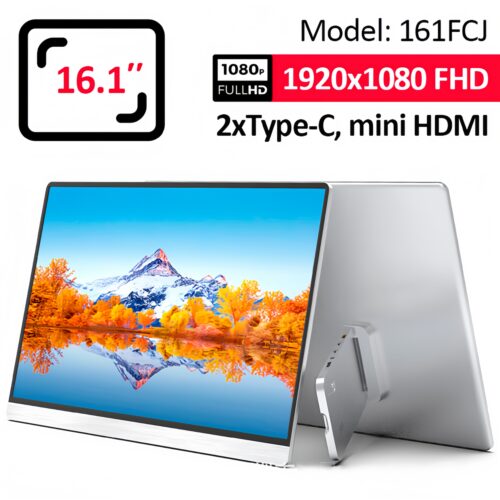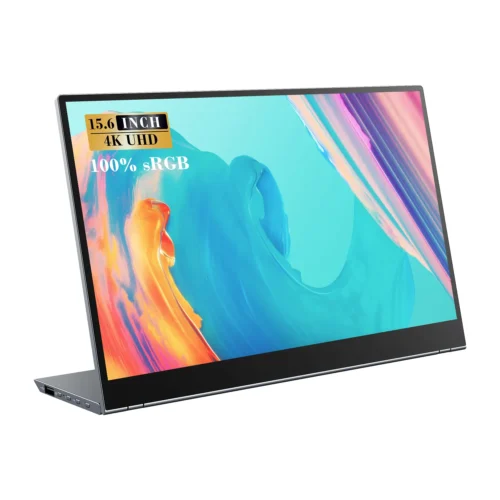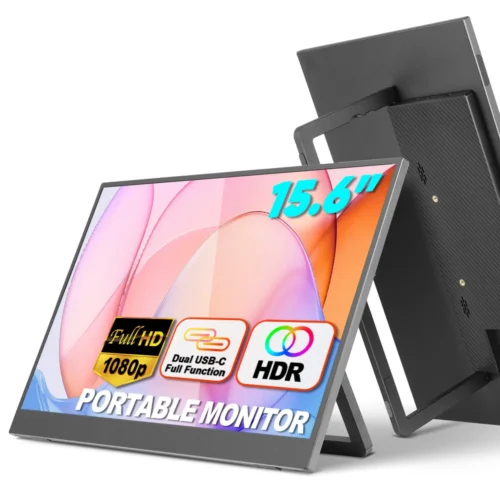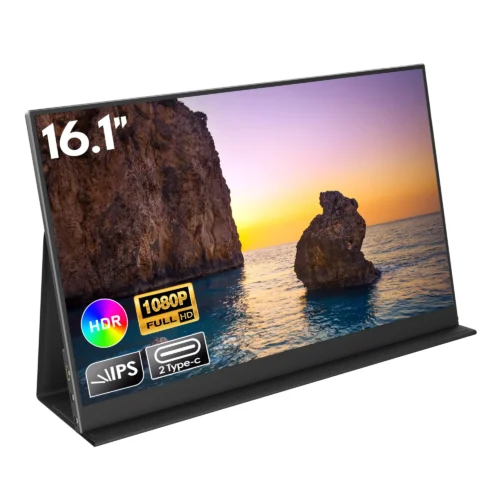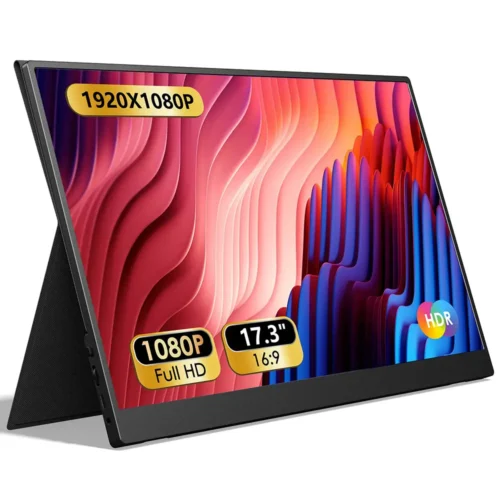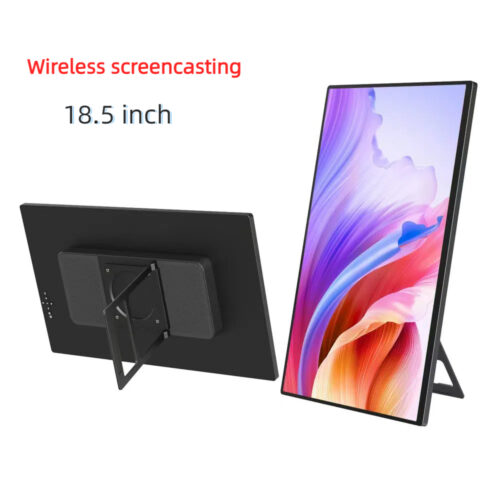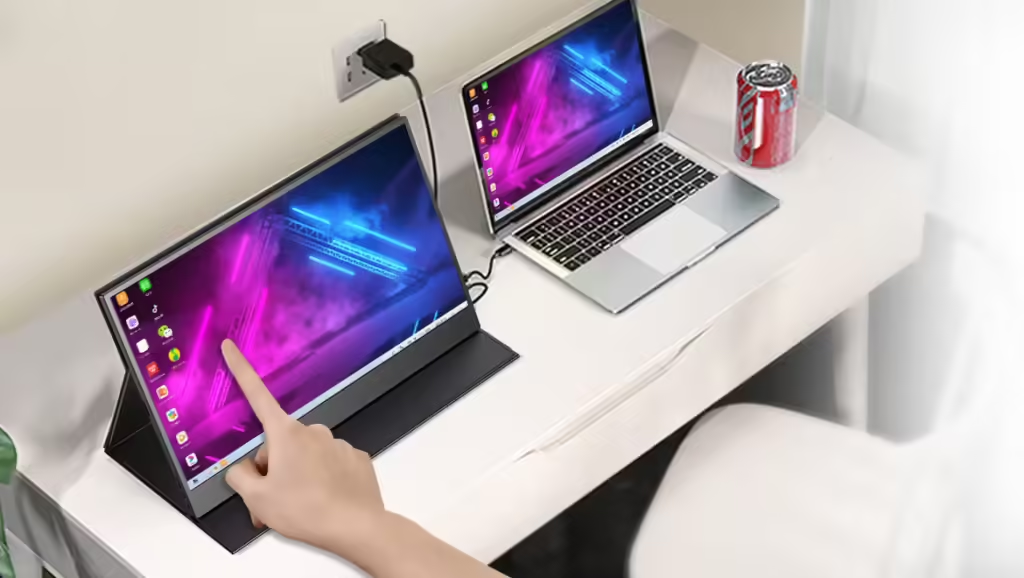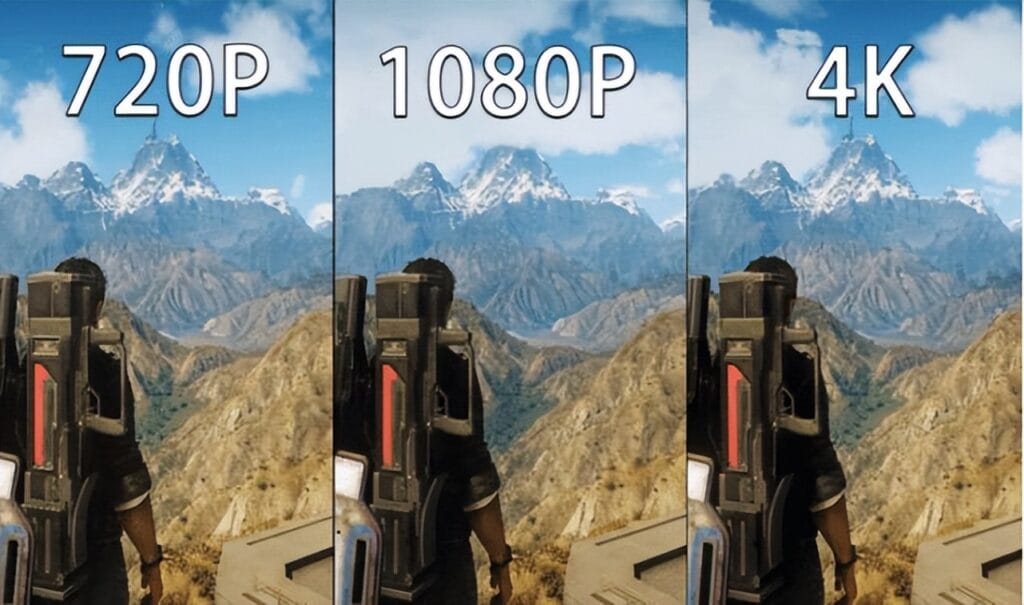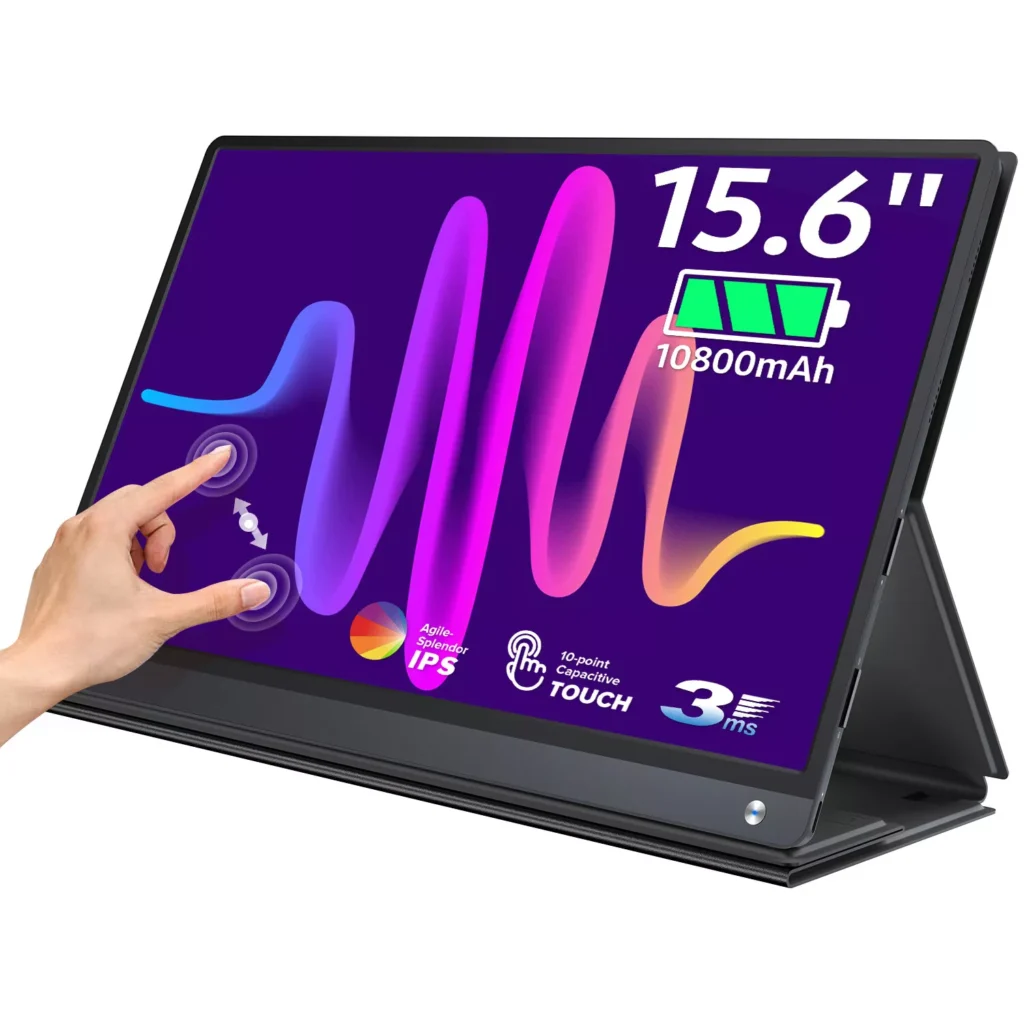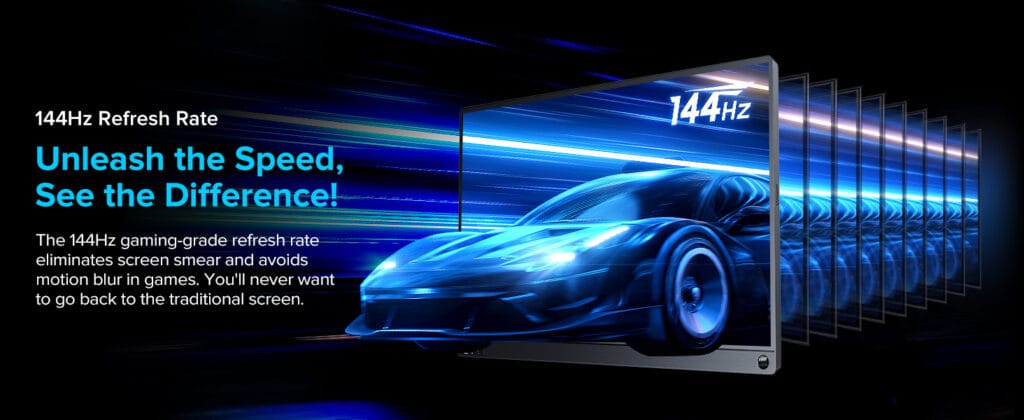With mobile work becoming the norm, portable monitors have become essential for boosting productivity. Whether you’re a business professional setting up a mobile workstation, a designer needing a creative canvas, or a gamer looking for an extended display, choosing the right portable screen is crucial. But with so many options available, how do you make the right choice?
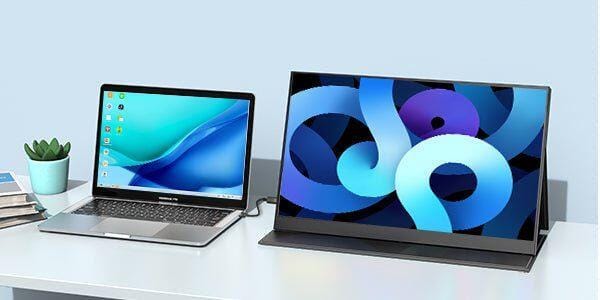
This guide breaks down the six key factors to consider before buying a portable monitor.
1. Size and Resolution: Choose Based on Your Needs
Size Recommendations
- 13-14 inches: Ultra-portable, perfect for frequent travelers.
- 15.6 inches: The sweet spot—a balance between display size and portability.
- 17 inches: Desktop-like experience, best for fixed setups.
Resolution Guide
- Basic office tasks: FHD (1920×1080) is sufficient.
- Creative work & media consumption: 2K or 4K resolution recommended.
- Professional use: Prioritize IPS panels with 100% sRGB or higher color accuracy.
▶️ For Designers: Look for screens with ≥90% DCI-P3 color gamut and factory color calibration for optimal accuracy.
2. Connectivity: Ensure Device Compatibility
Essential Ports
- USB-C: One-cable solution for both power and video transmission.
- HDMI: A must-have for gaming consoles.
- Mini DP: Important for some MacBook users.
Advanced Features
- Wireless Screen Mirroring: Ideal for presentations.
- OTG Support: Allows direct connection to smartphones for a mobile workstation.
⚠️ Pro Tip: Always check the port version (e.g., HDMI 2.0 supports 4K at 60Hz).
3. Gaming Performance: Refresh Rate & Response Time Matter
For Gamers
- Refresh Rate: 144Hz or higher for ultra-smooth visuals, with FreeSync/G-Sync support.
- Response Time: ≤3ms (GTG) for reduced motion blur.
- HDR400 Certification: Enhances contrast and detail in games.
For Office Work
- 60Hz refresh rate + 5ms response time is sufficient.
- Low blue light certification helps protect your eyes.
4. Portability: More Than Just Lightweight
Key Considerations
- Weight: ≤1.2kg (about the weight of two water bottles).
- Thickness: ≤8mm for easy storage.
- Durability: Consider Gorilla Glass for screen protection.
Useful Features
- Magnetic Smart Cover: Functions as both a stand and a protective case.
- VESA Mount Support: Allows mounting flexibility.
- Anti-Fingerprint Coating: Helps keep the screen clean.
5. Extra Features: What Do You Really Need?
Value-Added Features
- Touchscreen Support: Ideal for designers and note-taking (supports 4096-level pressure stylus).
- Built-in Battery: 5000mAh battery provides up to 4 hours of standalone use.
- Smart System: Some monitors feature Android OS, allowing independent operation.
💼 Best for Business Users: Split-screen functionality and automatic rotation via gravity sensor.
6. Brand & After-Sales Service: The Hidden Value
What to Look For
- Warranty: A 3-year warranty is better than the industry standard.
- Color Calibration Support: Some brands provide downloadable calibration files.
- Accessory Ecosystem: Official stands, travel cases, and cables can enhance usability.
Best Fit Recommendations
- Mac Users: P3 wide color gamut + USB-C one-cable solution.
- Gamers: Look for VRR (Variable Refresh Rate) technology.
- Mobile Professionals: Prioritize PD (Power Delivery) charging support.
Product Recommendation: The Smart Choice
Take the Onext Pro series as an example. It innovatively compresses a 15.6-inch 4K screen into an ultra-thin 4.8mm body, featuring a full-function USB-C port and a Smart Cover stand. Its Creator Mode allows one-click switching to Adobe RGB color gamut, while Gaming Mode supports 144Hz refresh rate and AMD FreeSync technology, balancing professional and entertainment needs.
Decision-Making Guide
✔️ Identify your primary use case: Work, design, or gaming?
✔️ Determine your usage scenario: Fixed setup, mobile, or hybrid?
✔️ Check device compatibility: Port types and protocols.
✔️ Set performance benchmarks: Resolution and refresh rate.
✔️ Evaluate additional features: Touchscreen, battery, OS support.
✔️ Compare after-sales support: Warranty and technical assistance.
By systematically analyzing your needs and considering the latest portable monitor technology, you can confidently choose a display that best fits your workflow. Remember, there’s no perfect device—only the right one for your unique setup!
Recommended products
Portable Laptop Screen 16.1 inch Laptop Monitors Full HD, IPS, USB Type-C, Flicker Free, Blue Light Filter Silver With Foldable Stand
15.6 Inch FHD 4K Portable Displays Screen Ultra-Slim IPS Display Use For Multiple Screen Laptop
15.6 Inch FHD 1080P Portable Displays USB C HDMI External Display for Laptop Second Monitor
16.1inch 1080P FHD Laptop Monitor USB-C HDMI External Computer Display HDR IPS Gaming Monitor Smart Cover & Speaker, 2nd Screen for Laptop PC Mac Phone Xbox PS3-5 Switch
17.3” USB Portable Monitor 1080P Full HD IPS, 60Hz, USB Type-C, Eye Care, HDMI Port, FSC Certified
ONext 18.5 inch Portable Laptop Monitor ,Wireless screencasting Laptop Monitors with Kickstand
